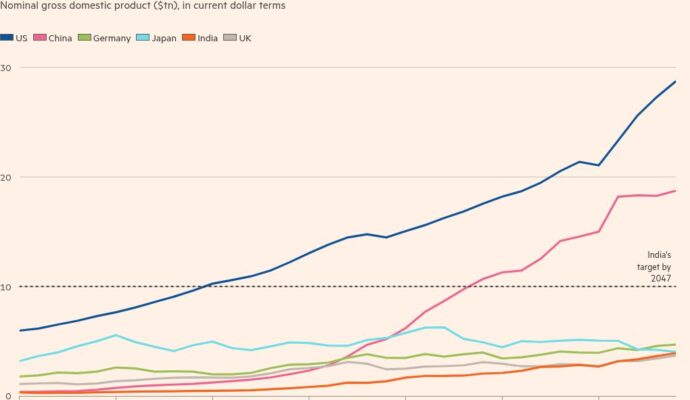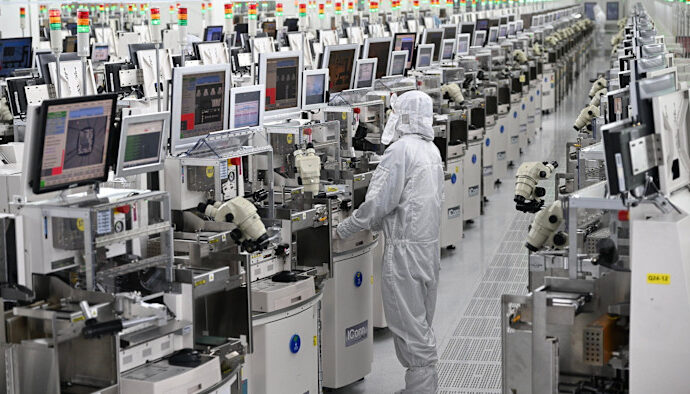Unlock the Editor’s Digest for free
Roula Khalaf, Editor of the FT, selects her favourite stories in this weekly newsletter.
Toyota Motor’s biggest subsidiary has received a ¥4.7tn ($33bn) take-private proposal that includes ¥1bn of chair Akio Toyoda’s personal money, in a deal that will reshape Japan’s largest business empire.
Toyota Industries, a key parts manufacturer for the world’s biggest carmaker by sales, said on Tuesday it had received an offer of ¥16,300 a share from a special-purpose company backed by Toyota Motor and another company in the broader Toyota Group.
The offer is 11.4 per cent below Toyota Industries’ closing price of ¥18,400 on Tuesday, but represents a 23 per cent premium to the price before interest in the management buyout became public on April 25.
Toyota Group is a collection of 18 companies, including the carmaker, with shareholdings in each other, an out-of-favour ownership model that has been the target of corporate governance reform efforts. The buyout would unwind one of the group’s biggest cross-shareholdings and set the tone for the rest of corporate Japan.
The amount to be paid for Toyota Industries is ¥4.7tn, according to a company spokesperson. The figure includes a near-25 per cent stake held by Toyota Motor worth about ¥1tn that Toyota Industries will acquire through a share buyback at a later stage.
Toyota Group said a new holding company would be established, with Toyota Motor investing about ¥700bn in non-voting shares. Toyota Fudosan, an unlisted property group chaired by Toyoda, will also contribute ¥180bn, on top of the chair’s personal investment.
Toyoda himself, Toyota Motor and Toyota Fudosan will ultimately be the holding company’s three owners, simplifying ownership of Toyota Industries.
Parts suppliers Aisin and Denso will relinquish their shares of Toyota Industries, untangling a network of cross-shareholdings. Toyota Motor will also buy back a 9 per cent stake that Toyota Industries holds in the carmaker.
Regulators and the stock exchange in Japan have urged companies to reduce cross-shareholdings and so-called parent-child listings, in which a large company and its subsidiary are both publicly listed.
Toyota Industries’ board of directors said they would support the take-private proposal when the holding company is established and commences the tender offer in December.
While the deal represents a step forward in Japan’s corporate governance reform drive, some analysts have cautioned that there is a lack of transparency around the valuations.
“There is minimal transparency for how advisers come up with a fair value. Usually there is some. Beyond that, the company plans to change its balance sheet dramatically by selling off the majority of its crossholdings near term,” said Travis Lundy, an independent analyst. “There are a lot of moving parts poorly explained.”
Net debt at Toyota Industries is ¥1.7tn, a spokesperson said, lifting the enterprise value above ¥6tn.
Three Toyota Group companies involved in the transaction said: “Through this privatisation, Toyota Industries intends to deepen collaboration within Toyota Group, dynamically and swiftly advance these activities, and lead the way in the mobility sector.”
Toyota Industries is the world’s largest forklift producer and was founded in 1926 by Akio Toyoda’s great-grandfather Sakichi Toyoda to make automatic looms. It developed an automotive division, which was spun off and later became Toyota Motor.


